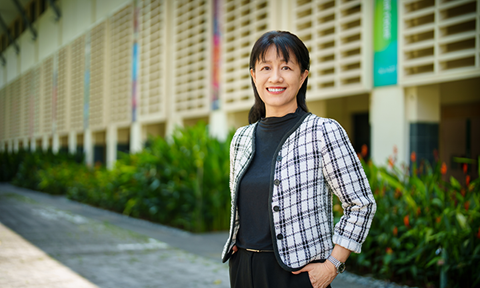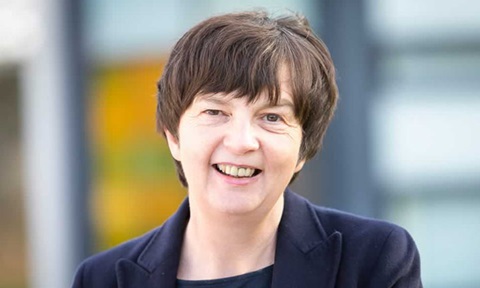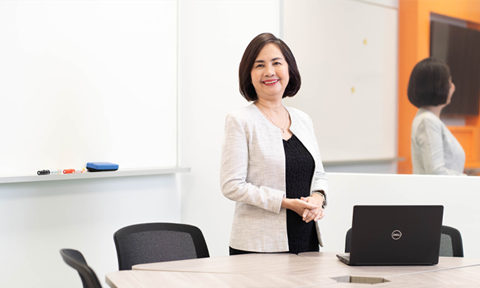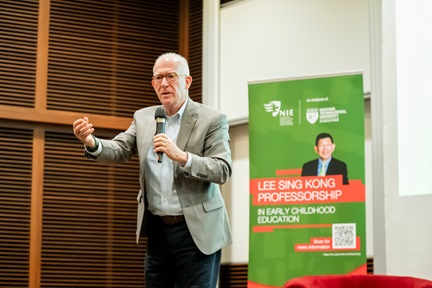Minor Issues: Is it okay that my daughter has no enrichment classes?
SINGAPORE – My seven-year-old daughter and I were at a mall one weekend when we saw children entering an enrichment centre.
“Why do they have school on Sunday?” she asked, puzzled. Attending classes outside of school is a foreign concept to my daughter.
I sometimes get asked by other parents: “What tuition does she go for? What enrichment does she attend?”
“Nothing,” I say. “She doesn’t have any classes outside of school.”
“How do you keep her occupied? What does she do on weekends?” they ask, curiously.
Living in a tuition nation and an enrichment-enthusiastic society, raising a child who does not attend any extra lessons must seem odd.
While I may have objected to sending my two older children, now 17 and 14, to academic classes when they were younger, I had no qualms about letting them sign up for non-academic ones such as rollerblading, dance or soccer clinics when they expressed an interest.
But it is a different ball game with my youngest child, who seems interested in music and numbers, yet refuses to attend any classes.
“Why are you giving her a choice? You should start her on piano, or send her for maths class,” fellow parents urge me.
But each time I ask my daughter, I get the same answer.
“No, I want to just stay at home with you,” she says in earnest.
Since she is so adamant about not attending any classes, and I don’t want to force her to, she has none.
She seems happily engaged playing at home, doing jigsaw puzzles or playing with Lego some days, arts and crafts on other days, reading Young Scientist magazines or her simple chapter books in between. Or we go out on weekends, to the zoo or parks.
Her reluctance to attend extra lessons could be partly due to her introverted character. She would rather play at home, either with us, or with our friends’ kids when we gather.
But I have wondered from time to time, am I short-changing her by not sending her to classes to develop her to her fullest potential? Will she be left behind since children in Singapore attend a plethora of classes?
The private education services sector in Singapore is a bustling industry worth $1.4 billion, based on the last Household Expenditure Survey in 2017 and 2018. The number has been rising steadily, up from $1.1 billion in the previous survey.
On a micro level, households on average spent $112 a month on private tuition and other educational courses in 2017 and 2018, an increase from $106 in 2012 and 2013, with households with a higher income spending more.
National Institute of Education lecturer Sandra Wu, whose research interests include the sociology of education, said parents in Singapore live in a meritocratic and competitive society. And because they want the best for their children, they try to give them the best and send them for classes to prepare them for school and life ahead.
She said socio-economic status is another reason, as these parents have the means to send their child for multiple enrichment classes.
She quoted a local study by the Singapore University of Social Sciences that found that parents want their children to be happy, but they also prioritise their learning, which leads to the phenomenon of children attending many enrichment classes.
“This is also one of the effects of the ‘schoolification’ of pre-school education – pre-schools adopting practices carried out in primary schools – where academic learning and achievement are emphasised and prioritised,” said Dr Wu.
While extra classes, especially ones that children enjoy, are fine in moderation, the trade-off to having too many classes is that children may not have enough time to play.
Dr Wu said that children who do not get the time to play, do not have the opportunity to learn, because they learn best through play.
“They experiment, explore and invent new ways of doing things. Children already possess the joy of learning and a sense of wonder from young. It is sad that the tuition, worksheets and didactic teaching kill the joy of learning,” she added.
An overscheduled child may end up feeling stressed out, she cautioned.
“Children wanting to please their parents will be fearful when they don’t meet their parents’ expectations and feel sad that they have disappointed them. It’s a lot of emotional strain on children in an already stressful and competitive system,” she said.
Some children I spoke to have enrichment or tuition every day. Some have tuition for their tuition homework – a tutor to help specifically with difficult homework from branded tuition centres.
And yet, from parents’ point of view, they simply want the best for their children, for them to do well in life.
It is a dilemma.
Can’t I want the best for my child without sending her for tuition or enrichment?
Why is attending school no longer enough?
Excluding children who need extra help with their studies and those who are keen on learning a special skill, one reason for signing a child up for many classes could be a parent’s desire for a sense of security, a safety net of sorts.
In hindsight, my son’s first enrichment class before he turned three – speech and drama lessons he attended for a term – was more for me than for him.
He was about to start nursery school and as a young, first-time parent, I thought the weekly parent-child lessons would be a good initiation for him since he could socialise with other kids. In other words, I would be there to see how he reacted to other kids and another figure of authority.
I can’t remember what he learnt, and he definitely can’t remember what he learnt. But at that time, I felt like it was the right thing to do as a parent. Was it really necessary? Probably not.
As I ponder about the pros and cons of not sending my daughter for extra lessons, I conclude that she may not know how to play the piano or do a pirouette, but she has lots of time for free play, and we get to do activities together and bond over them.
Maybe, at some point, she will ask for classes.
Or maybe there will come a day when parents don’t have to wonder if they are doing the right thing, just because they don’t send their kids for additional lessons.
Source: The Straits Times © SPH Media Limited. Permission required for reproduction


.tmb-listing.jpg?Culture=en&sfvrsn=41a4c4ea_1)


